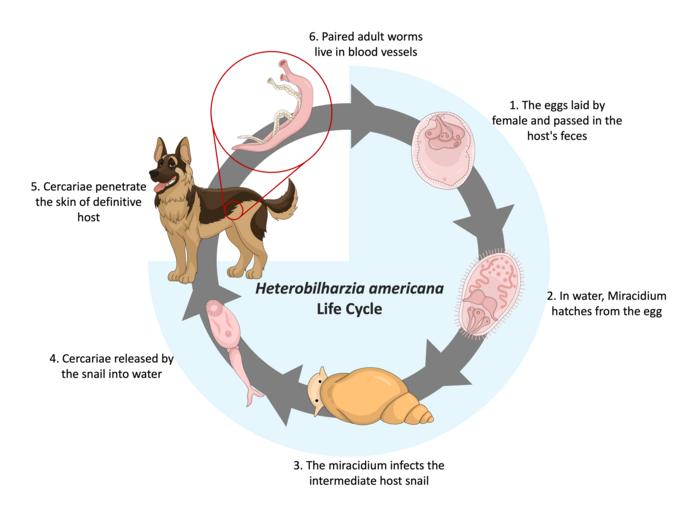Scientists from UC Riverside have confirmed the presence of a potentially fatal dog parasite, Heterobilharzia americana, commonly known as liver fluke, in a section of the Colorado River that flows through California.
This discovery marks the first time the parasite has been reported this far west, as it was previously found almost exclusively in Texas and other Gulf Coast states. The parasite can cause canine schistosomiasis, a severe illness affecting the liver and intestines of dogs.
UCR nematology professor Adler Dillman and his research team collected more than 2,000 snails from the river banks in Blythe, a border town east of Joshua Tree National Park in Riverside County, after learning about local dogs infected with the parasite. Using DNA analysis, the team confirmed the identity of both the snails and the flatworm, as described in a paper published in the journal Pathogens.
“Dogs can die from this infection, so we are hoping to raise public awareness that it’s there,” said Dillman. “If you’re swimming in the Colorado River with them, your pets are in peril.”
The infection is transmitted by snails, which the worm uses to transform itself before seeking out a mammal to infect. If a dog or raccoon is in the water or drinking from it, they can become infected. The worm’s eggs can cause damage to various organs, including the lungs, spleen, liver, and heart, leading to severe symptoms and potentially death.

Since 2019, 11 dogs in three California counties have been confirmed with this disease, with one fatality. Health officials are working to raise awareness and prevent further infections and deaths. Emily Beeler, a veterinarian with the Los Angeles County Department of Public Health, advises dog owners to seek a fecal test from their veterinarian if their pet shows symptoms after swimming in the Colorado River.
While H. americana is not known to cause disease in humans, it can cause swimmer’s itch, a red rash where it penetrates human skin. Dillman emphasizes that the parasite is not a concern for urban drinking water contamination, as it can be easily filtered out using common water purification strategies. However, he warns against drinking directly from the river due to the presence of other pathogens.
#DogParasite #ColoradoRiver #CanineHealth #WaterSafety


